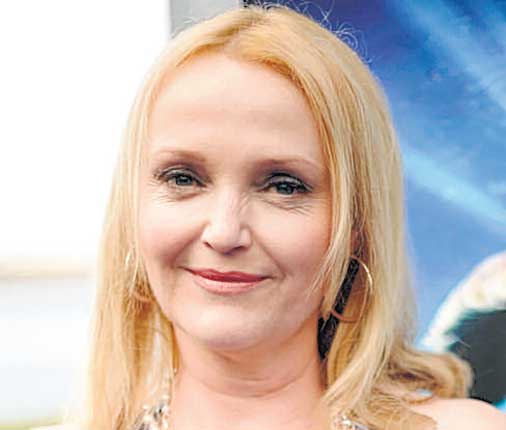The Week In Radio: Real-life troughs and a fictional Peake

Your support helps us to tell the story
From reproductive rights to climate change to Big Tech, The Independent is on the ground when the story is developing. Whether it's investigating the financials of Elon Musk's pro-Trump PAC or producing our latest documentary, 'The A Word', which shines a light on the American women fighting for reproductive rights, we know how important it is to parse out the facts from the messaging.
At such a critical moment in US history, we need reporters on the ground. Your donation allows us to keep sending journalists to speak to both sides of the story.
The Independent is trusted by Americans across the entire political spectrum. And unlike many other quality news outlets, we choose not to lock Americans out of our reporting and analysis with paywalls. We believe quality journalism should be available to everyone, paid for by those who can afford it.
Your support makes all the difference.It was the week when radio listeners were mesmerised by a crisis in a dark, amoral realm, seething with feuds, peopled by an elderly dynast, his grotesque family and their troublesome employees. Gormenghast, of course. What did you think I meant?
But more of Mervyn Peake's masterpiece later. There is no more consuming subject of interest to the media than the media, but is the audience equally obsessed? On day one of the Murdoch "Arab Spring", Evan Davis noted a bewildering quirk in Today programme listener response. "Interesting we're getting as many emails about university access as the News of the World this morning," he marvelled. At times it was almost impossible to keep up. "A torrent of accusations, where would you like me to start?" asked Eddie Mair after one especially packed bulletin. But did the BBC overdo it? Certainly there was an element of revenge towards their ancient foe in the tenor and breadth of coverage, and the BBC itself, with its regular leaks, was a key player in the drama. But there was a heady sense of establishment certainties shifting – and why should that be underplayed? With the current affairs programmes providing wall-to-wall treatment, it was hard for the specialist shows to find anything original to say, however. A Media Show special did little more than air the woe of hacks ("a lot of them will never work again," said Carole Malone), and try out various metaphors for the Murdoch empire ("a tottering Middle East dictatorship in which loyalty to the chief is more important than ethical behaviour" according to Andrew Gowers). But its coverage was not essentially different from what Today and PM were providing. A solicitor, Mark Lewis, summed up the real challenge for commentators when he said, "I don't want to use the word [sic] 'watershed moment', but it's a watershed moment."
No such clichés in The History Of Titus Groan, which contained as many fabulous grotesques as you'd ever find in the NOTW, but with dazzling verbal originality. The stunning feature of Mervyn Peake's books is his extravagantly descriptive passages. The risk of a radio adaptation is that they will be forfeit in favour of direct speech. Fortunately, Brian Sibley's script retained a true flavour of the book, giving us Lady Gertrude with her "coils of dark red hair clustered on the pillows like burning snakes", the servant Flay "patched and brittle like a shard of falling masonry" and the rebel kitchen boy Steerpike with his "dark half closed eyes, hot with hatred". If anything, this lavish delight in language perhaps caused the narrative to flag slightly. The acting, with Miranda Richardson as Gertrude and James Fleet as Prunesquallor, was more than adequate compensation however.
While you can make comparisons with Dickens, and with Tolkien, in many ways Peake resembles a writer like Blake as a true English one-off. An attempt to plumb his extraordinary vision came in A Hundred Years of Mervyn Peake. While I would have liked a deeper look at the psyche that produced Gormenghast, his son Sebastian did suggest that his father's visit to the newly liberated Belsen had profoundly affected him. There he found "another locked-off community, a community of horrors and terrors." The lasting sense of guilt, Sebastian felt, may have precipitated Peake's catastrophic mental decline.
How apt that the new series of Beyond Belief, always a searching and uncompromising show, should focus on Hell. A place or a state of mind? Getting consensus from religious people is harder than getting Hugh Grant to hug a hacker, but the one thing everyone agreed on was that we all have a "deep psychological need for the retributive picture." After the week we've had, I think that much is clear.
Join our commenting forum
Join thought-provoking conversations, follow other Independent readers and see their replies
Comments